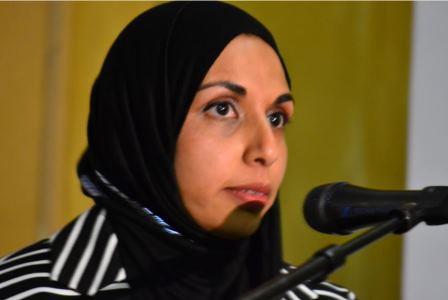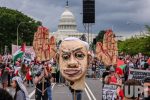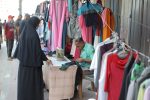In 2015 – two years after a devastating civil war broke out in South Sudan that pushed millions to the brink of starvation – the South Sudan government launched a multi-million dollar agricultural project called Green Horizon. The aim of the project was to develop farms so that South Sudan could feed its people and produce surplus for export.
The tender for the much-needed project was awarded to Israel Ziv a former Israeli army operations director who touted Israeli experience in agricultural development. It was Ziv’s sole such venture anywhere in the world.
Rather than fighting hunger however Green Horizon was instead used to fuel the deadly conflict between President Salva Kiir and his former deputy and fellow rebel leader Riek Machar.
In July Juba-based investigative journalist Sam Mednick reporting for the Organised Crime and Corruption Reporting Project (OCCRP) revealed how Ziv transferred at least $140 million to South Sudan’s central bank for the sale of Israeli weapons to the government. Ziv used his contacts within South Sudan’s Defense and Agricultural Ministries the Israeli Ministry of Defense and commodity trading firm Trafigura. The weapons included rifles grenade launchers and shoulder-fired rockets.
Ziv’s dirty history
In 2016 Israeli media revealed that Ziv was helping President Kiir whitewash his reputation after the UN found his government permitted soldiers to use rape as a weapon of war.
Another investigation showed how Ziv’s company had been involved in security deals in South Sudan as opposed to agricultural projects as he maintained.
In December 2018 the US Treasury Department imposed sanctions on Ziv for his role in extending a conflict that has claimed 400000 lives and left four million displaced.
Weapons as diplomacy
Ziv’s shady dealings and dirty history is representative of Israel’s approach to diplomacy in Africa. “For decades Israel has invested very little in its formal diplomacy in the continent and has instead relied on various private entrepreneurs and intermediaries to sustain its relationships with African leaders” says Yotam Gidron whose forthcoming book “Israel in Africa” focuses on Israel’s relationships with African countries.
Arms exports to African countries are a fundamental component of Israel’s diplomacy on the continent and its attempt to counter criticism of its brutal occupation of Palestine says Gidron. Ziv is the personification of the middle-man approach to diplomacy that Israel has employed on the continent.
Cultivating conflict
Israel has a long bloody history in South Sudan.
Since South Sudan gained its independence in 2011 Israel has continuously sold it weapons surveillance technology and provided military training and homeland security – most of which have ultimately been used to commit war crimes.
In 2015 the UN Security Council adopted a ban on weapons sales to the warring sides. A committee established to monitor the implementation of the ban found that both sides in the country’s civil war were managing to buy arms despite the weapons ban.
The damning report showed photographic evidence of Israel’s ACE assault rifles in the arsenal of South Sudan’s government and opposition forces.
Israel also sold wiretapping equipment to South Sudan after the civil war broke out. This equipment was used to identify and arrest opponents of the government and journalists. According to Israeli attorney and activist Eitay Mack Israel not only installed the listening equipment for the South Sudanese government but also continued to operate it via Israeli technicians stationed in South Sudan.
Israeli officials assured the UN that Israel would suspend transfers of lethal equipment to any party in South Sudan. Yet the Defense Export Control Agency (DECA) at the Israeli Ministry of Defense continued to grant export licenses to Israeli weapons companies to sell lethal weapons through Ziv and Green Horizon – in violation of EU US and UN embargoes. In a throwback to its arming of apartheid South Africa Israel showed that it had no problem arming a regime that had been universally shunned.
Israel’s secret arms industry
In 2017 Mack along with 54 Israeli activists filed a petition with the Israeli High Court seeking an investigation into Israel’s exporting of arms to South Sudan. Israeli courts imposed gag orders on the case maintaining the secrecy and murkiness around Israel’s arms export licensing process. Several freedom of information requests filed with Israel’s Defense Ministry have also been denied.
Israel recognizes the economic benefits and diplomatic importance of exporting arms (that have been field-tested on Palestinians) to African countries. This is why the Israeli government fiercely protects weapons exports to Africa by stonewalling activists’ efforts at achieving greater transparency and public oversight of Israel’s military exports.
Israel’s lethal aid to Africa
While Israel’s Africa-based diplomats widely market Tel Aviv’s offers of water and agricultural technology that promise to liberate the continent from drought and food scarcity they carefully conceal another more lethal aspect to Israel’s assistance to Africa: Israel has armed the most murderous regimes on the continent.
In the 1990’s Israel violated the international arms embargo and supplied the Hutu-dominated Rwandan government forces as well as the rebel army led by Paul Kagame with bullets rifles and grenades as genocide was under way in that country. Israel also trained the Rwandan military and paramilitary forces in the years leading up to the bloodbath.
Israel also trains units guarding oppressive presidential regimes in Cameroon Togo and Equatorial Guinea.
Israel and South Sudan: a special relationship
Israel’s current involvement in South Sudan is “exceptional” in its history of military exports says Mack. “This goes way beyond greed. Israel is currently fighting over the viability of a project that it has invested much in over the years.”
Although South Sudan is less than a decade old its friendly relationship with Israel goes back to the 1960’s when Mossad first provided military support to southern Sudanese rebels fighting for independence says Yotam Gidron. Mossad even produced propaganda materials on behalf of the southern Sudanese rebel group Anya-Nya between 1969 and 1971.
Israel recognized South Sudan just 24 hours after it declared independence in 2011.
“For Israel ties with South Sudan represented an avenue for curbing Arab and Iranian influence in the Horn of Africa particularly since Sudan used to be Iran’s most important ally in this region. For South Sudan close ties with Israel helped secure and maintain American sympathy and support which partly explains why it continues to have one of the most pro-Israeli voting records in the UN of all African nations” explains Gidron.
According to Eitay Mack Israel must completely halt all military and security-related exports to South Sudan to guarantee that it is not complicit in war-crimes and crimes against humanity in Africa.
Given Israel’s own long history of war-crimes against Palestinians and violations of international law in the occupied Palestinian territories it is unlikely that Israel will do the right thing and stop feeding South Sudan’s conflict.
As the weapons and military training flow so too will the blood.
– Suraya Dadoo is a South African writer based in Johannesburg. Her article appeared in MEMO.












